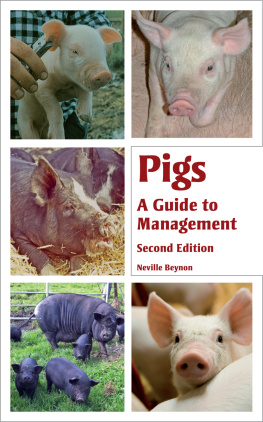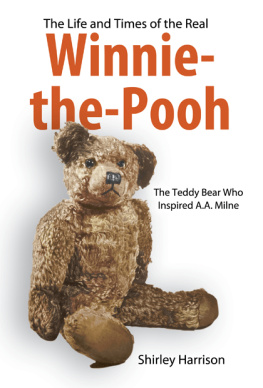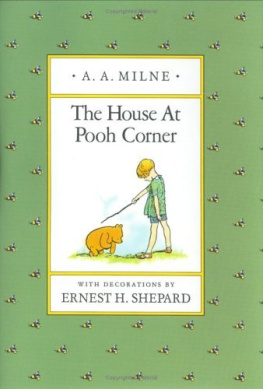Benjamin Hoff - The Te of Piglet
Here you can read online Benjamin Hoff - The Te of Piglet full text of the book (entire story) in english for free. Download pdf and epub, get meaning, cover and reviews about this ebook. year: 1993, publisher: Penguin (Non-Classics), genre: Art. Description of the work, (preface) as well as reviews are available. Best literature library LitArk.com created for fans of good reading and offers a wide selection of genres:
Romance novel
Science fiction
Adventure
Detective
Science
History
Home and family
Prose
Art
Politics
Computer
Non-fiction
Religion
Business
Children
Humor
Choose a favorite category and find really read worthwhile books. Enjoy immersion in the world of imagination, feel the emotions of the characters or learn something new for yourself, make an fascinating discovery.
- Book:The Te of Piglet
- Author:
- Publisher:Penguin (Non-Classics)
- Genre:
- Year:1993
- Rating:3 / 5
- Favourites:Add to favourites
- Your mark:
- 60
- 1
- 2
- 3
- 4
- 5
The Te of Piglet: summary, description and annotation
We offer to read an annotation, description, summary or preface (depends on what the author of the book "The Te of Piglet" wrote himself). If you haven't found the necessary information about the book — write in the comments, we will try to find it.
The Te of Piglet — read online for free the complete book (whole text) full work
Below is the text of the book, divided by pages. System saving the place of the last page read, allows you to conveniently read the book "The Te of Piglet" online for free, without having to search again every time where you left off. Put a bookmark, and you can go to the page where you finished reading at any time.
Font size:
Interval:
Bookmark:
Benjamin Hoff is an Oregon writer, photographer, musician, and composer with a fondness for Forests and Bears. And Piglets. A Bachelor of Arts (he thinks his degree was in Asian Art, but then, he hasnt looked at it for a while, and it may not be), he was until recently a Japanese-trained fine pruning specialist. He now writes full time. Well, most of the time. The rest of the time he practices Taoist yoga, Tai Chi Chuan, stunt kite-flying, boomerang shaping and (ouch!) throwing, and Taoist tennis, whatever that is. He also enjoys sleeping and lying about on the floor.
He is the author of The Tao of Pooh, The Te of Piglet, and The Singing Creek Where the Willows Grow: The Rediscovered Diary of Opal Whiteley.
Published by the Penguin Group
Penguin Books USA Inc., 375 Hudson Street,
New York, New York 10014, U.S.A.
Penguin Books Ltd, 27 Wrights Lane, London W8 5TZ, England
Penguin Books Australia Ltd, Ringwood, Victoria, Australia
Penguin Books Canada Ltd, 10 Alcorn Avenue,
Toronto, Ontario, Canada M4V 3B2
Penguin Books (N.Z.) Ltd, 182-190 Wairau Road,
Auckland 10, New Zealand
Penguin Books Ltd, Registered Offices:
Harmondsworth, Middlesex, England
First published in the United States of America by Dutton,
an imprint of New American Library,
a division of Penguin Books USA Inc., 1992
Published in Penguin Books 1993
10987654321
Grateful acknowledgment is made to the Trustees of the Pooh Properties for the use of illustrations by E. H. Shepard and quoted material by A. A. Milne.
Copyright Benjamin Hoff, 1992
All rights reserved
Individual copyright for text quotations and illustrations:
Winnie-the-Pooh, Copyright 1926 by E. P. Dutton & Co., Inc.
Copyright renewal 1954 by A. A. Milne. The House at Pooh Corner, Copyright
1928 by E. P. Dutton & Co., Inc. Copyright renewal 1956 by A. A. Milne.
Saturday Review: Why It Failed and Succeeded by Norman Cousins, The Christian Science Monitor, August 31, 1982.
Nadezhda Mandelstam, Hope Against Hope: A Memoir.
Translated from the Russian by Max Hayward, with an Introduction by
Clarence Brown. Atheneum Publishers, 1970.
Land of the Spotted Eagleby Luther Standing Bear. Copyright 1933 by Luther Standing Bear. Renewal copyright 1960 by May Jones.
Magical Child by Joseph Chilton Pearce. Copyright 1977 by Joseph Chilton Pearce.
Ezra Pound: Selected Prose 1909-1965. Copyright 1973 by The Estate of Ezra-Pound. Reprinted by permission of New Directions Publishing Corporation.
Peter Ackroyds Dickens (New York: HarperCollins Publishers, 1990). Copyright 1990 by Peter Ackroyd.
Louis Fischers The Life ofMahatma Gandhi (New York: Harper & Row, 1950). Copyright 1950 by Louis Fischer.
THE LIBRARY OF CONGRESS HAS CATALOGUED THE HARDCOVER AS FOLLOWS:
Hoff, Benjamin, 1946
The te of Piglet/Benjamin Hoff.
p. cm.
Summary: The author and the characters from the Pooh books engage in dialogue
elucidating the Taoist principle of Te, the Way of the Small.
ISBN 0-525-93496-0 (he.)
ISBN 0 14 02.3016 5 (pbk.)
1. Milne, A. A. (Alan Alexander), 1882-1956-Characters-Piglet.
2. Milne, A. A. (Alan Alexander), 1882-1956-Religion. 3. Size perception in literature. 4. Piglet (Fictitious character). 5. Taoism in literature. 6. Taoism. [1. Milne, A. A.(Alan Alexander), 1882-1956-Characters. 2. Taoism.] I. Title.
PR6025.I65Z69 1992 823.912-dc20 92-4503
Printed in the United States of America
Set in Perpetua and Caledonia
Except in the United States of America, this book is sold subject to the condition that it shall not, by way of trade or otherwise, be lent, re-sold, hired out, or otherwise circulated without the publishers prior consent in any form of binding or cover other than that in which it is published and without a similar condition including this condition being imposed on the subsequent purchaser.
For Lan Tsai-ho
It is hard to be brave, said Piglet,
sniffing slightly, when youre only a
Very Small Animal.
Rabbit, who had begun to write very
busily, looked up and said:
It is because you are a very small animal
that you will be Useful in the adventure
before us.
What? Another One?
Interjection
The-What Was That Again?-of Piglet
Very Small Animal
The Eeyore Effect
The Tigger Tendency
Things as They Might Be
Things as They Are
The Upright Heart
The Day of Piglet
Farewell
WHAT?
ANOTHER ONE?
One day not long ago, I found Piglet sitting by himself on the writing table, gazing wistfully out the window. I asked what he was doing
Oh, just wishing, he replied.
Wishing what? I asked.
Nothing, really, he said, turning pinker than usual around the ears.
You know I wont make fun of you if you tell me.
Well I was only wishing
Yes?
Only wishing That someday someone would notice me.
I notice you.
I only meant-that is, most everyone notices Pooh
Yes, most everyone does. Ever since the Pooh books came out, years ago.
And now, especially, said Piglet. Because of you-know-what.
Ah, yes, I said. Just for a moment, Id forgotten.
And then it was my turn to gaze wistfully out the window, remembering the spring of 1982. For it was then that Dutton released a book of mine called The Tao of Pooh. It seemed so long ago, somehow
The Tao of Pooh began as a reaction to what I considered an unfortunate situation. English-language writings on the Chinese philosophy of Taoism-which, I had come to realize, was far more than Chinese, and far more than philosophy-had for many years been dominated by scholarly sorts who seemed more interested in cataloguing and bickering over Minute Particulars than in communicating the practical wisdom of Taoist principles.
For most of my life I had been learning those principles from various Taoist teachers-some official and some not, some Chinese and some not, some in human form and (the best instructors of them all) some not. I saw them being muddled and mutilated in the Taoist writings of scholars who were not Taoists, who had not been taught by Taoists, and who did not practice Taoist skills and exercises-yet who monopolized the subject of Taoism and sneered at anyone who suggested that there was more to it than what they told.
I would come across such things as a description by the Taoist writer Chuangtse of some tactics of swordsmanship, translated into nonsense by an Authority apparently ignorant of even the basic precepts of Taoist martial arts And I would ask myself if there werent something that could be done about that sort of thing.
Then one day, while quoting to someone from A. A. Milnes Winnie-the-Pooh, I got an Idea. I could write a book explaining Taoism through the characters in Winnie-the-Pooh and The House at Pooh Corner. That would, it seemed to me, release Taoist wisdom from the grip of the Overaca-demics and restore to it the childlike awareness and sense of humor that they had taken away.
On being told of the Idea, certain Eeyores advised me against attempting anything of the sort. But following the advice of Eeyores has rarely seemed A Particularly Good Thing for Me to Do. Quite the contrary: If the Eeyores are against something, I tend to think there might be something to it.
And so I wrote the manuscript, it was published, and that (I thought) was the end of the matter. But it wasnt. It was more or less the beginning.
Before The Tao of Pooh, one would not have heard many nonscholarly or nonmystical Westerners discussing Taoism. Rut today Taoist principles are described in publications on business, science, psychology, health, sports, music, art, writing, computer programming, and other subjects. They are discussed in corporate-strategy sessions, high school and college classes, and other gatherings of various kinds. And (according to what Ive read and heard) the book most often recommended to explain Taoist principles is The Tao of Pooh. Colleges use the book as a text on Taoism, psychiatrists give copies to their patients, ministers quote from it in their sermons, Chinese martial arts instructors read it to their students, and so on. I have even been told that some motel owners put it in their rental units. It would seem that The Tao of Pooh (also known as Le Tao de Pooh, Tao enligt Puh, Nalle Puh ja Tao, and such) is known and liked around the world. And that, I must say, has pleased Pooh enormously.
Font size:
Interval:
Bookmark:
Similar books «The Te of Piglet»
Look at similar books to The Te of Piglet. We have selected literature similar in name and meaning in the hope of providing readers with more options to find new, interesting, not yet read works.
Discussion, reviews of the book The Te of Piglet and just readers' own opinions. Leave your comments, write what you think about the work, its meaning or the main characters. Specify what exactly you liked and what you didn't like, and why you think so.

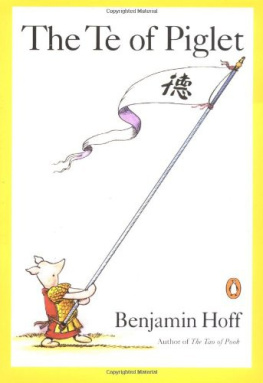
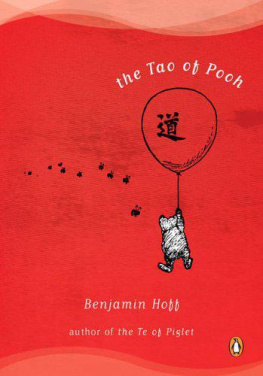

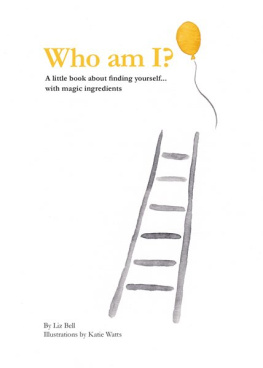
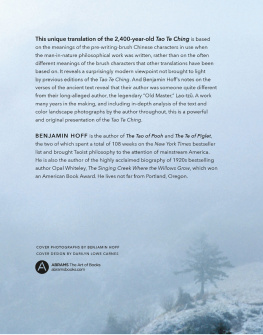
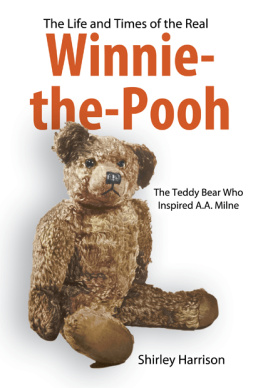
![Helen Peters [Helen Peters] - A Piglet Called Truffle](/uploads/posts/book/140179/thumbs/helen-peters-helen-peters-a-piglet-called.jpg)
